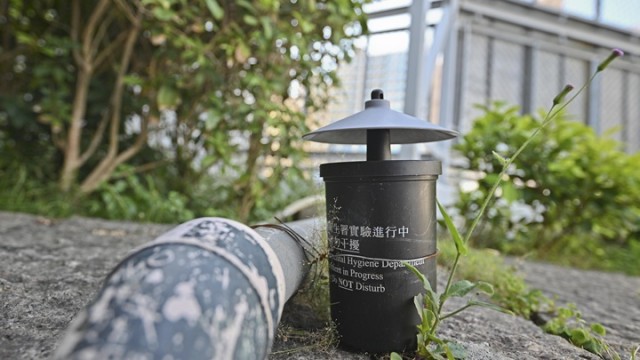Monthly gravidtrap index for Aedes albopictus of February remains at lowest level
The Food and Environmental Hygiene Department (FEHD) today (March 27) announced that the monthly gravidtrap index for Aedes albopictus in February was 0.3 per cent. The index in February remained at Level 1 at its lowest, indicating that distribution of Aedes albopictus in the areas surveyed was not extensive.
All the 64 survey areas were recorded with a gravidtrap index lower than the alert level of 20 per cent. Moreover, the monthly density index for Aedes albopictus in February remained at 1, which represented that an average of one Aedes albopictus adult was found in the Aedes-positive gravidtraps, indicating that the number of adult Aedes albopictus was not abundant in the survey areas. The gravidtrap and density indices for Aedes albopictus in different survey areas as well as information on mosquito prevention and control measures are available on the department's website at www.fehd.gov.hk.
A spokesman for the FEHD said, "Under the concerted efforts and collaboration of various government departments, the index in February remained at a low level. However, the warm and humid weather of spring is favourable for mosquito breeding. The FEHD will continue to monitor the mosquito infestation in all districts, and will conduct prompt and effective mosquito prevention and control work. At the same time, members of the public are reminded to continue the routine mosquito prevention and control work, and arrange early repair and maintenance of structures. Cracks and dents which may accumulate water and become potential breeding grounds shall be filled and levelled so as to reduce the chance of mosquito breeding."
The FEHD will conduct a three-phase Anti-mosquito Campaign this year. The first phase of the territory-wide campaign was launched from February 20 to March 17. During the period, the district offices of the FEHD targeted areas that have drawn particular concern, such as public markets, cooked food centres and hawker bazaars, single-block buildings, streets and back lanes, common parts of buildings, village houses, construction sites, vacant sites and road works sites, to remove accumulated water and to carry out mosquito prevention and control work. After the first phase of the campaign, the FEHD will conduct territory-wide thematic special operations on mosquito prevention and control, such as strengthening mosquito control at individual construction sites. To further enhance the effectiveness of mosquito control, the FEHD and relevant government departments have carried out the All-out Anti-mosquito Operations since March 20 to focus on eliminating potential mosquito breeding places, and called on property managements to arrange necessary repairs to their premises so as to minimise the mosquito breeding places before the breeding season. Furthermore, intense adult control will follow by means of regular ultra-low volume fogging operations in rainy season.
The FEHD appeals to members of the public to work together to carry out mosquito prevention and control measures, including inspecting their homes and surroundings to remove potential breeding grounds, changing water in vases and scrubbing their inner surfaces, removing water in saucers under potted plants at least once a week, properly disposing of containers such as soft drink cans and lunch boxes, and drilling large holes in unused tyres. The FEHD also advises members of the public and estate management bodies to keep drains free of blockage and level all defective ground surfaces to prevent the accumulation of water. They should also scrub all drains and surface sewers with an alkaline detergent at least once a week to remove any mosquito eggs.
Aedes albopictus is a kind of mosquito that can transmit dengue fever (DF) as well as Zika virus infection. DF is commonly found in tropical and subtropical regions of the world, and has become endemic in many countries in Southeast Asia. The dengue activity in neighbouring areas has remained high and Hong Kong has recorded seven imported DF cases so far this year. Members of the public should stay vigilant and continue to carry out effective mosquito prevention and control measures.



